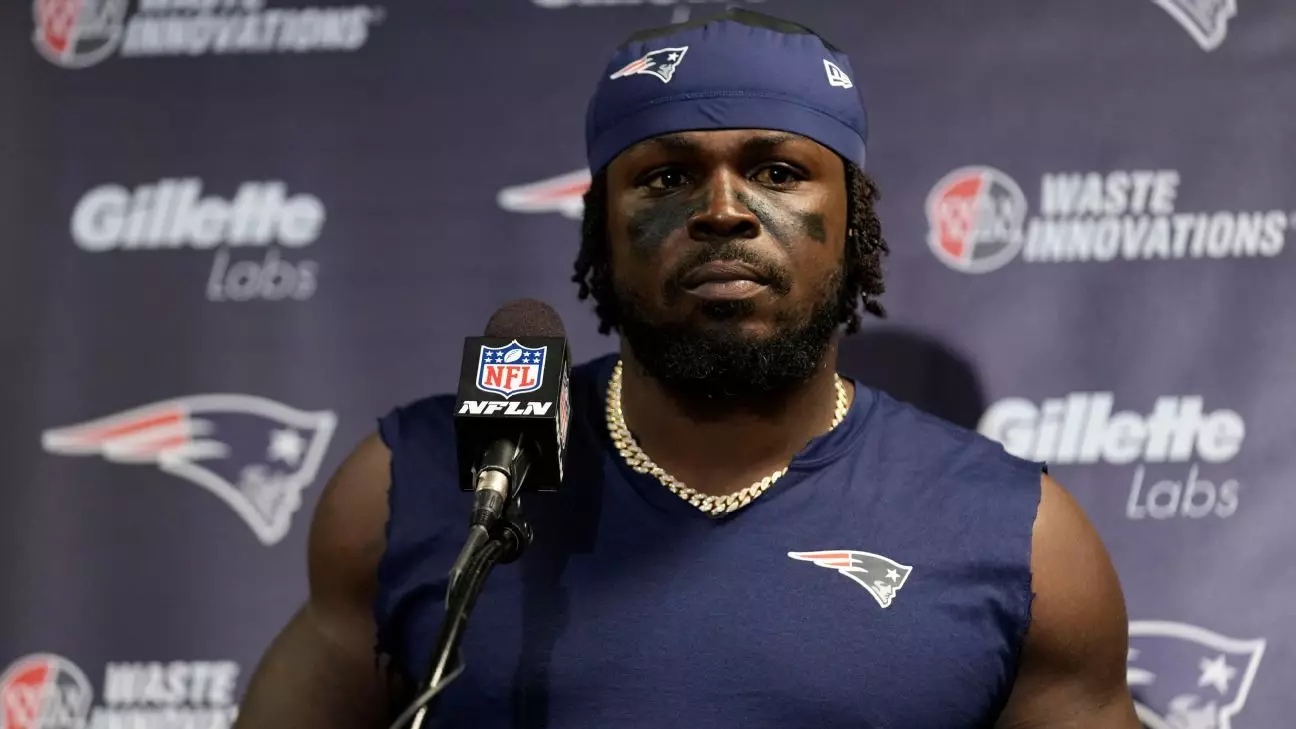The New England Patriots’ safety, Jabrill Peppers, is currently entangled in a complex legal situation that could significantly impact his career and the organization as a whole. Following his arrest in early October for serious charges including strangulation and drug possession, Peppers faced scrutiny not just from the legal system but also from the NFL’s internal policies regarding player conduct. Recently removed from the commissioner’s exempt list, Peppers is now able to partake in team activities, though the ongoing investigation and legal proceedings cast a shadow over his return to the field.
Despite being cleared for participation, the NFL has confirmed that its investigation into the matter remains active. This predicament illustrates the intricate relationship between athlete conduct off the field and the expectations of professional sports organizations.
On October 7, Peppers was arrested in Braintree, Massachusetts. The police were called to a residence where a disturbance had been reported, leading to alarming accusations against the athlete. The charges against him include assault and battery with a dangerous weapon, strangulation, and possession of a Class B substance, reportedly cocaine. The allegations state that Peppers physically assaulted a woman, which raises significant concerns about domestic violence.
The details outlined by law enforcement are troubling. Reports indicate that the woman involved alleges repeated acts of violence, including choking and physical intimidation. This paints a worrying picture of Peppers’ behavior and raises questions about accountability and the consequences of such actions within professional sports.
The Legal Battle Ahead
As the legal proceedings unfold, a crucial date on the calendar is a jury trial slated for January 22. This upcoming trial follows a pretrial hearing during which various aspects of the case were discussed, including attempts to settle the matter outside of court. Peppers’ attorney remarked that a significant settlement demand of $10.5 million had been rejected, suggesting that financial matters are intricately tied to the situation.
However, the plaintiff’s legal team countered that the proposed settlement was not as clear-cut as Peppers’ defense suggested. They clarified that their offer included compromises such as an apology from Peppers, contributions to domestic abuse support, and counseling commitments, without demanding exorbitant sums as a means to avoid civil action. This discrepancy raises essential discussions about what constitutes an appropriate resolution in such cases and the motivations of all parties involved.
The NFL’s handling of Peppers’ situation showcases the league’s ongoing commitment to enforcing its Personal Conduct Policy. Following the announcement that Peppers was removed from the commissioner’s exempt list, the league reiterated the importance of continuing its investigation. The statement indicated that Peppers’ eligibility to practice and play does not bypass the need for thorough scrutiny of his actions.
Patriots’ head coach Jerod Mayo has also addressed the situation, emphasizing the organization’s zero-tolerance policy regarding domestic violence. Mayo’s statements highlight a reflection of the broader societal stance against such behaviors, especially within a sports environment where athletes often serve as role models. His call for due process is a reminder that while allegations are serious, the legal system must determine guilt or innocence.
At 29 years old, Peppers finds himself at a critical juncture in his career. Now in his eighth season in the NFL and serving as a team captain, the ramifications of this legal battle could define not only his immediate playing future but also his legacy within the sport. The ongoing nature of the investigation and legal proceedings will undoubtedly weigh heavily on him, as well as the perception among fans and fellow players alike.
As Peppers re-engages with the team, he faces the daunting task of shifting focus back to football while maintaining his professionalism amid personal upheaval. The Patriots currently have an open spot on their roster, which underscores the potential for Peppers to reestablish himself as a crucial player for the team, provided he navigates these turbulent waters successfully.
The case of Jabrill Peppers is emblematic of the challenges facing professional athletes today. It encompasses elements of legal complexity, personal accountability, and broader societal issues like domestic violence. As the legal proceedings go forward, the outcome will be crucial not only for Peppers as an individual but also for the NFL’s ongoing attempts to uphold a culture of respect and responsibility. The implications of this case will resonate within the league, shaping conversations about player conduct and accountability for years to come.

Leave a Reply